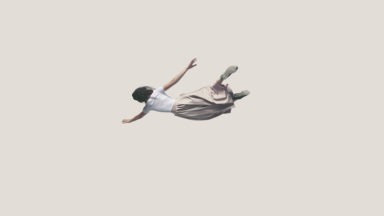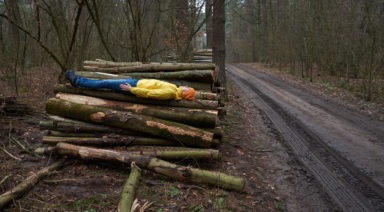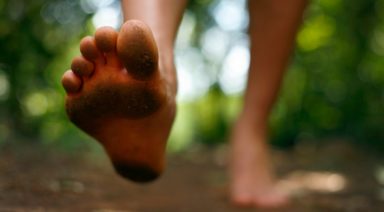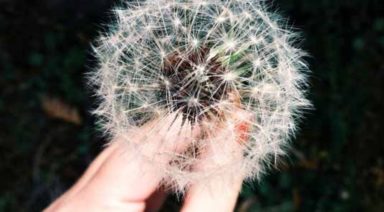New Study Could Show Why Kids Are Creative Geniuses
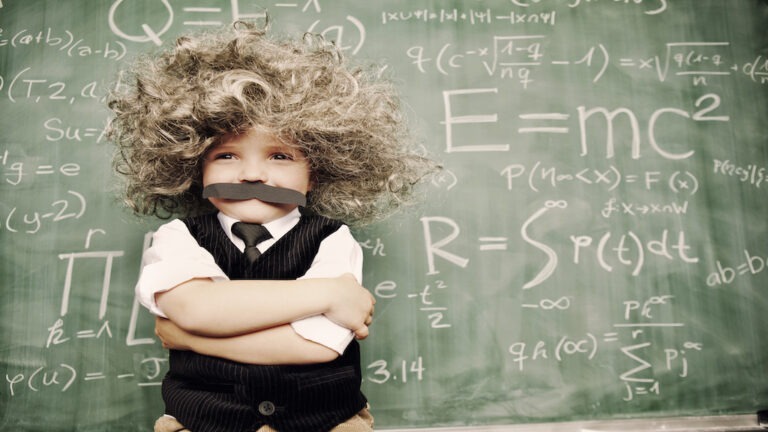
Most young children show signs of creative genius, but over time those numbers drop significantly.
A new study on how young children learn could help parents teach their children and help answer the question of nature versus nurture. In 1968, a study conducted by George Land and Beth Jarman found that 98% of children were considered creative geniuses by NASA standards.
But as this group grew older, that number dropped off rapidly; at age 10, it fell to 30 percent, by age 15 it dropped to 12 percent, and by adulthood, it was just two percent. Today, researchers at Birkbeck University in London are using brainwave scanning caps to look inside the brains of kids while they complete various tasks.
Artie Wu, an expert on parenting, relationships, and finding your bliss, weighs in on the subject.
“Children come out, they see the world as it is —they don’t know — there’s no filter between brain and mouth,” Wu said. “But this is the genius view, they see the world as it is, not as it should be. The aperture has not tightened down, they just see everything as it is, and they say it. We typically need to do some bit of trimming, training, and educating for them to be able to get along in life. (But) the way we do the enforcement is through shaming.”
Part of NASA’s creative genius test determined whether a subject showed ‘divergent thinking,’ also known as ‘thinking outside the box.’ Children have these ideas often, but as we get older we become afraid of expressing them out of fear of being wrong.
“So the difference between shame and guilt is; guilt is something transactionally that’s off, and we can fix that; shame is there’s something intrinsically wrong with me. Especially to a seven-year-old, they don’t know the difference between guilt and shame, so they feel like they are loved less,” Wu said. “Because of the shaming mechanism we use, what ends up being instilled in the kid is that my love is conditional — there’s something I can actually do which will cause me to lose love.“
What would the opposite look like? What if we were encouraged as children instead of shamed? Wu points to the story of young Pablo Picasso.
“Even as a boy, he was apparently so good that his father came to Picasso and the father gave him his own brushes and said ‘You are so good, I cannot paint anymore, I’m done and you are now the painter of the family,’” Wu said. “And Picasso was, I don’t know, seven or eleven, and I’m like ‘talk about self-esteem!”
“So the eternal question is: was there something in Picasso, that 98 percent genius that was preserved by that kind of upbringing and environment? But then the implication is ‘[W]hat are you saying, Artie, are you saying we’re all Picassos and we’ve just lost this expression of our inner Picasso-ness because of this?’
“And I’m like ‘Yeah, that’s what I’m saying!’”
The researchers at Birkbeck University hope to use the same technology in the future to study adults and may prove we have a genius hidden inside all of us.
Mindfulness Techniques Dramatically Improve Kids' Sleep in Study

A new study shows that training children in mindfulness techniques can dramatically improve their sleep.
Recent statistics suggest we are in the midst of an epidemic of poor sleep, and children are especially vulnerable to the consequences.
Dr. Christina Chick is a developmental psychologist who recently headed a study at Stanford University that looked at a mindfulness-based solution to sleep issues in children.
“Kids, depending on the age, but between elementary school and junior high, should really be getting nine to 11 hours of sleep per night,” Chick said. “The best data that we have suggests that most kids on average are getting seven hours. So, if you think about that, on average, at least two hours loss night after night after night, that adds up to compound to a significant loss of the restorative functions of sleep.”
Research is continually uncovering the many vital functions that only happen during sleep and are essential for overall health, particularly in children.
“We think of sleep as a passive process, and in fact, it’s a very active one,” Chick said. “So, when your body goes to sleep, your brain in many ways goes to work. Part of that work is consolidating memories, so all of that wonderful learning that happens during the school day, but also social and emotional memory. Sleep is also when a lot of growing happens; if kids are losing out on two hours plus of sleep per night, that starts to add up to a disadvantage over time.”
















